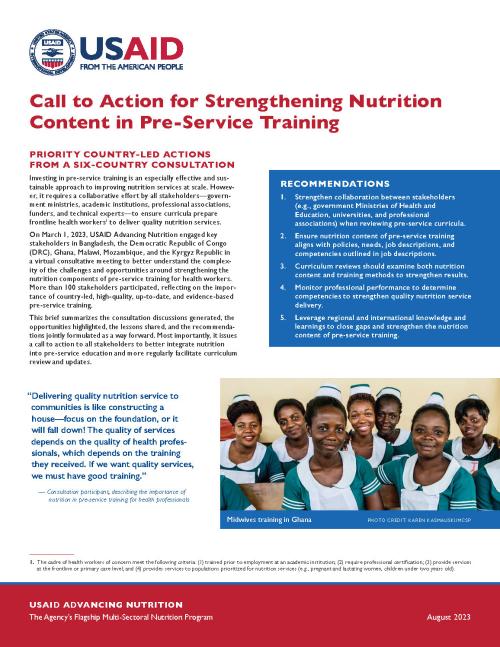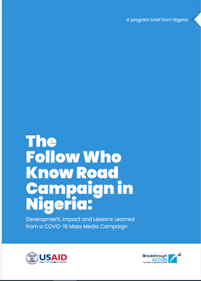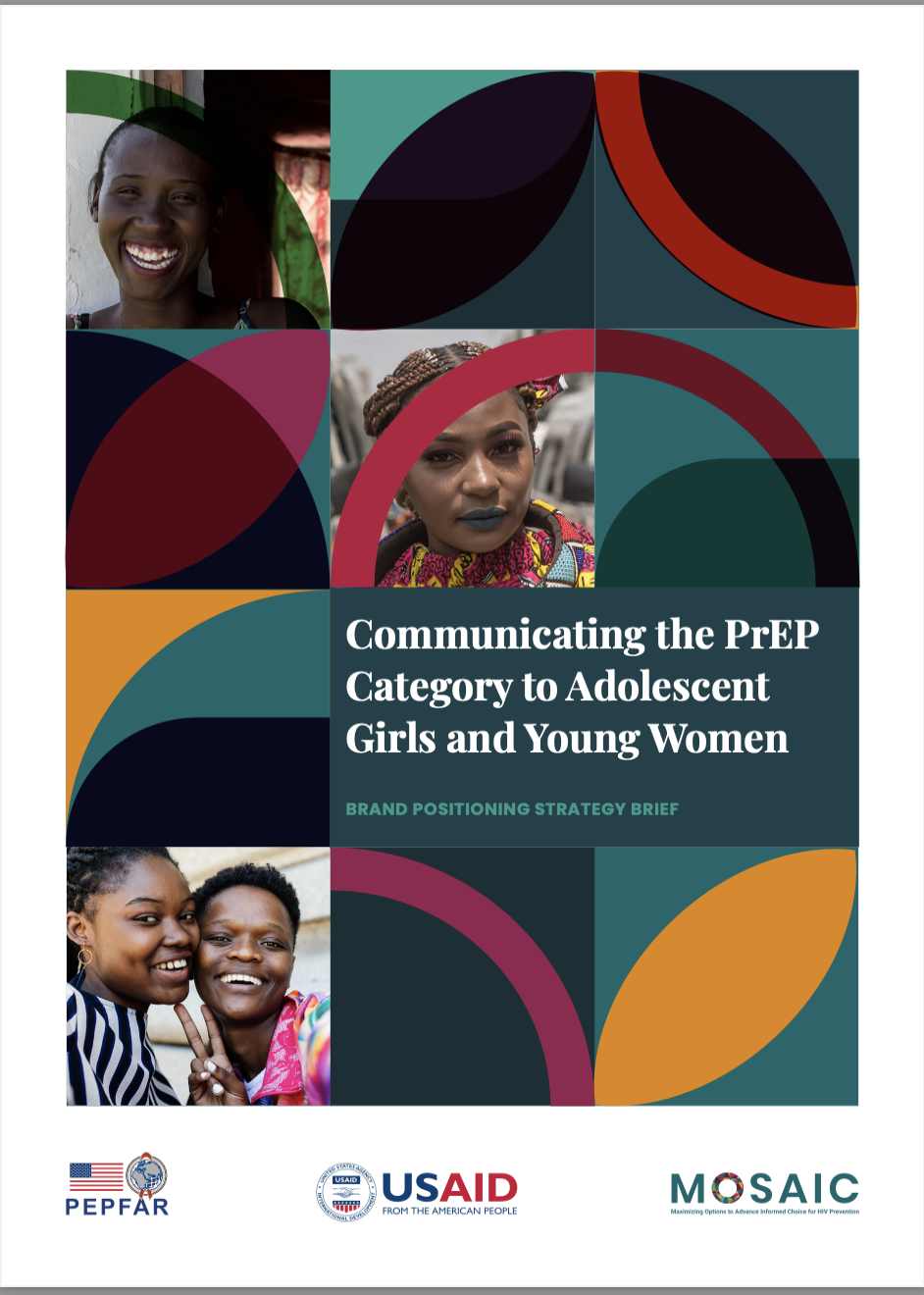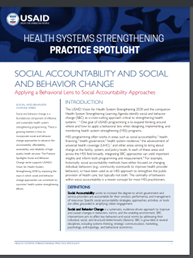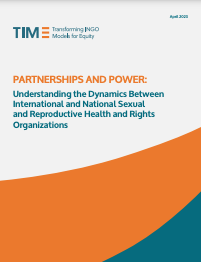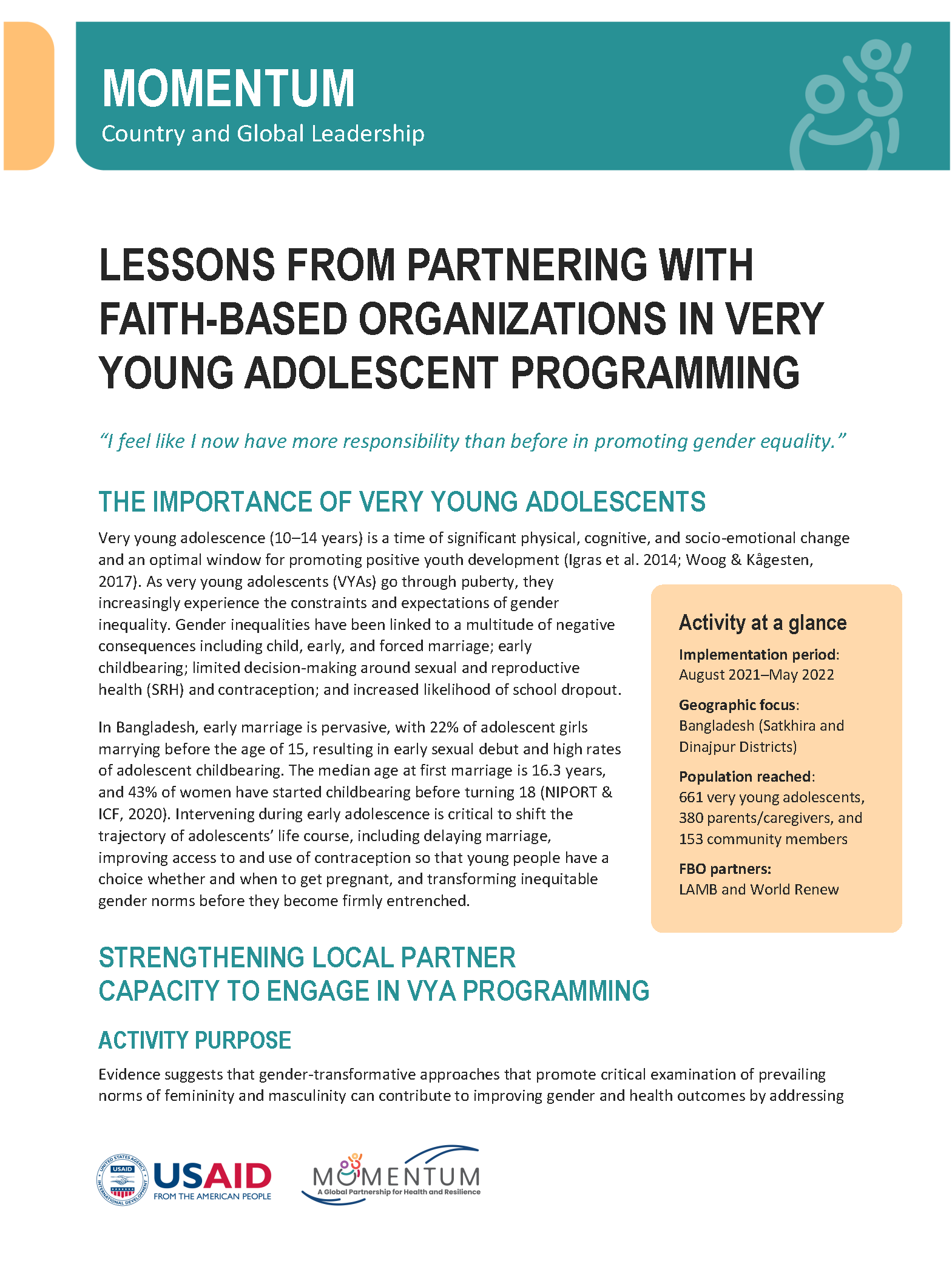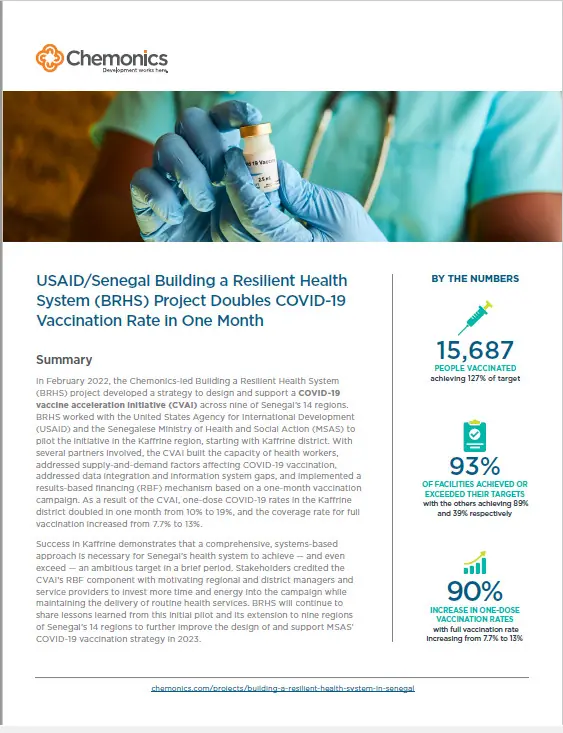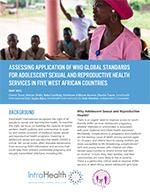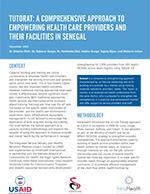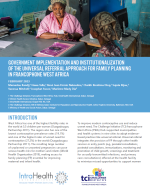Call to Action for Strengthening Nutrition Content in Pre-Service Training
Investing in pre-service training is an effective and sustainable way to improve nutrition services, but it requires collaboration among governments, academic institutions, professional associations, funders, and technical experts to ensure curricula prepare frontline health workers to deliver quality nutrition services.
On March 1, 2023, USAID Advancing Nutrition engaged key stakeholders in Bangladesh, the Democratic Republic of Congo (DRC), Ghana, Malawi, Mozambique, and the Kyrgyz Republic in a virtual consultative meeting to better understand the complexity of the challenges and opportunities around strengthening the nutrition components of pre-service training for health workers. This brief summarizes the consultation discussions generated, the opportunities highlighted, the lessons shared, and the recommendations jointly formulated as a way forward. It issues a call to action to all stakeholders to better integrate nutrition into pre-service education and more regularly facilitate curriculum review and updates.
Last modified: December 29, 2023
Language: English, French, Portuguese
Source: USAID Advancing Nutrition
Year of Publication: 2023

